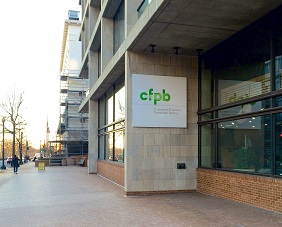Newsroom
TD Bank to pay settlement of $122M for UDAAP violations
 TD Bank has agreed to pay $122 million in a settlement with the CFPB regarding claims that the bank deceptively charged overdraft fees for certain ATM and one-time debit card transactions. The bureau issued a consent order against TD Bank last week citing that the bank marketed its optional overdraft service as free while charging customers $35 for each overdraft transaction.
TD Bank has agreed to pay $122 million in a settlement with the CFPB regarding claims that the bank deceptively charged overdraft fees for certain ATM and one-time debit card transactions. The bureau issued a consent order against TD Bank last week citing that the bank marketed its optional overdraft service as free while charging customers $35 for each overdraft transaction.
“The Bureau found that TD Bank’s overdraft enrollment practices violated the Electronic Fund Transfer Act (EFTA) and Regulation E by charging consumers overdraft fees for the ATM and one-time debit card transactions without obtaining their affirmative consent,” the bureau said in its release on the settlement.
In addition, the bureau found that the bank engaged in unfair, deceptive and abusive acts or practices (UDAAP) that are in violation of the Consumer Financial Protection Act (CFPA) and the Fair Credit Reporting Act (FCRA).
TD Bank will pay an estimated $97 million in restitution to certain consumers enrolled in its Debit Card Advance (DCA) service and pay a $25 million civil money penalty. According to an American Banker article on the settlement, TD Bank does not admit to any wrongdoing under the civil settlement.
The CFPB earlier this year released a policy statement addressing the “abusive” prong of the UDAAP provision following calls by NAFCU to provide clarification. CFPB Director Kathy Kraninger said she intends to provide more clarity related to the factual basis for determining a covered person has violated the abusiveness standard, as well as the basis for abusiveness citations, in future supervisory highlights and materials.
Clarifying UDAAP has been a priority for Kraninger since she became director of the bureau.
NAFCU has long defended credit unions' use of responsible programs related to insufficient funds and is monitoring increased litigation risk related to overdraft programs, keeping credit unions informed while the industry and other financial institutions face class action lawsuits. The association has several compliance resources available online.
Share This
Related Resources
Add to Calendar 2024-06-26 14:00:00 2024-06-26 14:00:00 Gallagher Executive Compensation and Benefits Survey About the Webinar The webinar will share trends in executive pay increases, annual bonuses, and nonqualified benefit plans. Learn how to use the data charts as well as make this data actionable in order to improve your retention strategy. You’ll hear directly from the survey project manager on how to maximize the data points to gain a competitive edge in the market. Key findings on: Total compensation by asset size Nonqualified benefit plans Bonus targets and metrics Prerequisites Demographics Board expenses Watch On-Demand Web NAFCU digital@nafcu.org America/New_York public
Gallagher Executive Compensation and Benefits Survey
preferred partner
Gallagher
Webinar
Add to Calendar 2024-06-21 09:00:00 2024-06-21 09:00:00 The Evolving Role of the CISO in Credit Unions Listen On: Key Takeaways: [01:30] Being able to properly implement risk management decisions, especially in the cyber age we live in, is incredibly important so CISOs have a lot of challenges here. [02:27] Having a leader who can really communicate cyber risks and understand how ready that institution is to deal with cyber events is incredibly important. [05:36] We need to be talking about risk openly. We need to be documenting and really understanding what remediating risk looks like and how you do that strategically. [16:38] Governance, risk, compliance, and adherence to regulatory controls are all being looked at much more closely. You are also seeing other technology that is coming into the fold directly responsible for helping CISOs navigate those waters. [18:28] The reaction from the governing bodies is directly related to the needs of the position. They’re trying to help make sure that we are positioned in a way that gets us the most possibility of success, maturing our postures and protecting the institutions. Web NAFCU digital@nafcu.org America/New_York public
The Evolving Role of the CISO in Credit Unions
preferred partner
DefenseStorm
Podcast
AI in Action: Redefining Disaster Preparedness and Financial Security
Strategy
preferred partner
Allied Solutions
Blog Post
Get daily updates.
Subscribe to NAFCU today.
